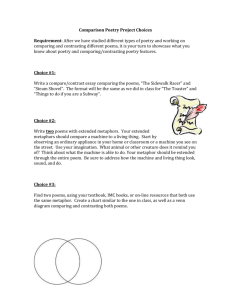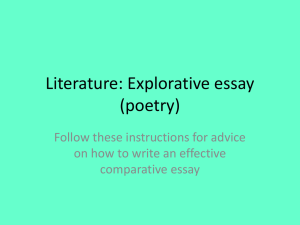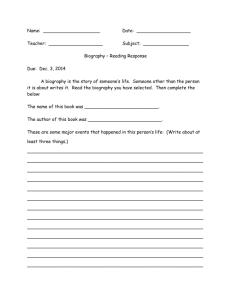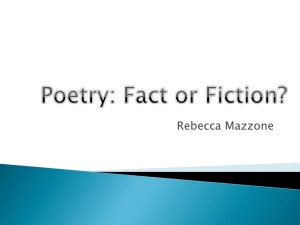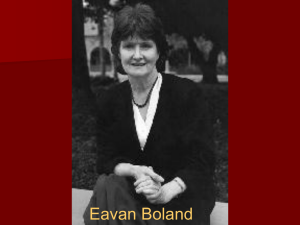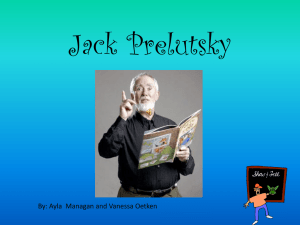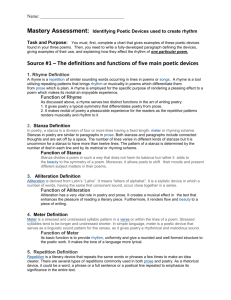On-line Activities
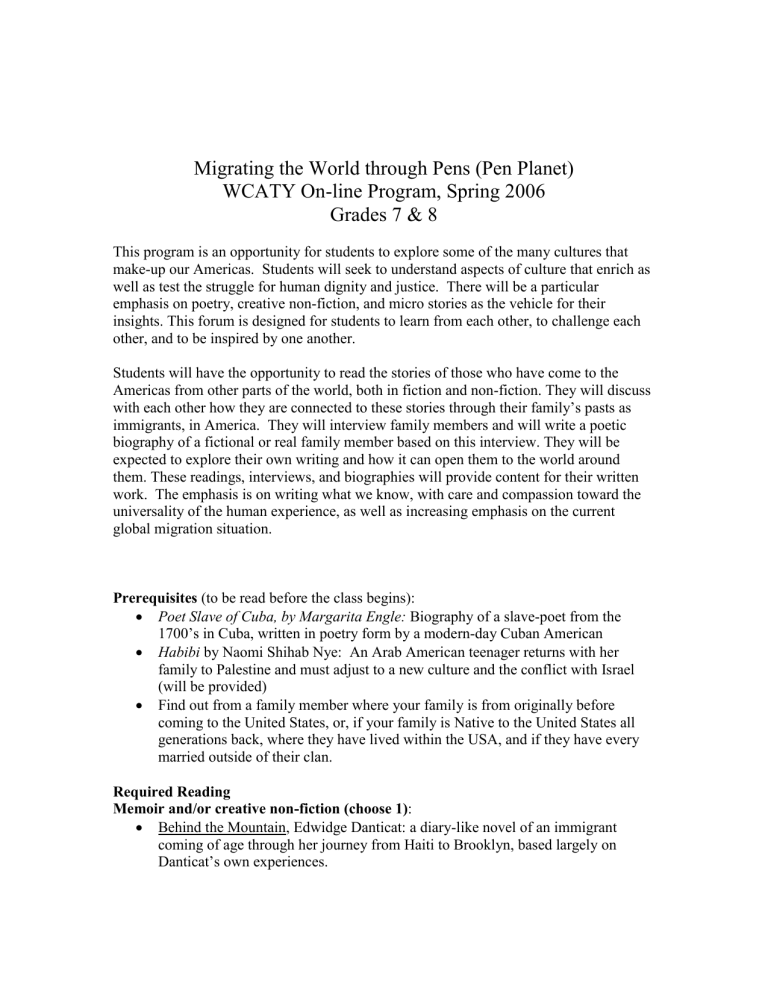
Migrating the World through Pens (Pen Planet)
WCATY On-line Program, Spring 2006
Grades 7 & 8
This program is an opportunity for students to explore some of the many cultures that make-up our Americas. Students will seek to understand aspects of culture that enrich as well as test the struggle for human dignity and justice. There will be a particular emphasis on poetry, creative non-fiction, and micro stories as the vehicle for their insights. This forum is designed for students to learn from each other, to challenge each other, and to be inspired by one another.
Students will have the opportunity to read the stories of those who have come to the
Americas from other parts of the world, both in fiction and non-fiction. They will discuss with each other how they are connected to these stories through their family’s pasts as immigrants, in America. They will interview family members and will write a poetic biography of a fictional or real family member based on this interview. They will be expected to explore their own writing and how it can open them to the world around them. These readings, interviews, and biographies will provide content for their written work. The emphasis is on writing what we know, with care and compassion toward the universality of the human experience, as well as increasing emphasis on the current global migration situation.
Prerequisites (to be read before the class begins):
Poet Slave of Cuba, by Margarita Engle: Biography of a slave-poet from the
1700’s in Cuba, written in poetry form by a modern-day Cuban American
Habibi by Naomi Shihab Nye: An Arab American teenager returns with her family to Palestine and must adjust to a new culture and the conflict with Israel
(will be provided)
Find out from a family member where your family is from originally before coming to the United States, or, if your family is Native to the United States all generations back, where they have lived within the USA, and if they have every married outside of their clan.
Required Reading
Memoir and/or creative non-fiction (choose 1) :
Behind the Mountain, Edwidge Danticat: a diary-like novel of an immigrant coming of age through her journey from Haiti to Brooklyn, based largely on
Danticat’s own experiences.
First Crossing: Stories about Teen Immigrants, Edited by Donald R.Gallo: Ten short stories told from teenage immigrant perspectives, on changing their lives by coming into the United States.
Poetry (choose 1) : any of the following Naomi Shihab Nye (edited or written by her) titles:
What Have You Lost? Poems of things lost and found by poets from all over the world.
19 Varieties of Gazelle, National Book Award Finalist. Poems from the perspective of an Arab-American writing after Sept. 11, 2001.
The Space Between Our Footsteps: Poem and Paintings from the Middle East,
(1998). More than a hundred poets and artists from nineteen Middle Eastern countries explore the themes of homeland, exile, family, rivers, love, war, and more.
Novel (choose 1) :
Stone in My Hand, Cathryn Clifton: Traces a family’s experience of the occupation in the Gaza Strip, Palestine.
Parrot in the Oven, Victor Martinez: The frustration and bitterness of a struggling family as told through Manny's (a Mexican-American teen) first-person narrative.
Martinez's honest voice, and descriptions sprinkled with elegant imagery, offer a rare and believable portrait of barrio life.
Required Writing
On-line responses to instructor’s questions that address “habits of mind:” exploration of perspective ; providing evidence to support opinions, insights, and ideas; making connections to other works of literature, history, and contemporary life; analyzing the effects of change ; and determining the importance of the work they are reading and creating.
On-line responses to other students’ postings that indicate high-level, analysis, synthesis, and evaluation. Particular emphasis on learning to critique others’ creative writing in constructive ways.
A 2-3 page poetic biography of a family member: each student will interview someone from their family in order to build a semi-fictional poetic biography of their family’s cultural past.
9 original pieces that are responses to the material presented in this class: poems, prose poems, paragraphs. Must include one poem, one short story, and one creative non-fiction work, besides the poetic biography.
Required Project
A personal chapbook of including all creative writing work from the 9 weeks, and the poetic biography of a family member, fiction or non-fiction, based on an interview.
Skills Emphasized
Response to the work of peers: how to generate on-line discussion
How to offer useful suggestions
Writing a high quality creative writing piece
Analysis (“Habits of Mind”)
Writing poetry, including the prose poem
Figurative language: metaphor, simile, imagery
Book making
Connecting visual art and literature
Oral presentation
Week-to-week Schedule
Each week: critique one other piece by others in the class, post a piece to be critiqued. Post a link to an article (no duplicates) about global migration and comment on someone else’s post about global migration.
Week 1: Introduce yourself online and get to know your family’s culture at home.
Read the pre-requisite books, plus one poetry book. Schedule a time to interview a family member in the fourth week: online, over phone, or in person.
Week 2: Read pre-requisite books, plus one poetry book, and continue getting familiar with online.
Week 3: First F2F. Bring knowledge of family heritage. See first F2F for full description of activities. Have read the required books and one poetry book.
Week 4: Interview family member. Read novel from selected list. Write 3 or more poems.
Week 5: Read novel from selected list. Begin working on poetic biography. Write 3 or more poems.
Week 6: Second F2F. See below. Write 3 or more micro stories.
Week 7: Write 3 or more micro stories. Assemble and edit final chapbook. Read essay/memoir book from list.
Week 8: Write 3 or more micro stories. Read essay/memoir book from list. Assemble and edit final chapbook.
Week 9: Last F2F. See below.
Face-to Face Meetings, On-line Activities, and Student
Writing: Schedule
Face-to-Face #1
Introductions, course outline and expectations
Materials including rubrics for assessment
Open Class Meeting: Culture and Composition of the Americas. Includes discussion of where everyone’s families are from originally, marked on a map.
Practice on-line discussion: Introduction by Melissa Bleiler from WCATY
In-class writing assignment and time, sharing, and chance to practice feedback poetry
How-to interview a family member
Sack lunch
Re-writing (editing for further art and understanding)
Create a poem with word packets (provided by instructor), followed by critique and discussion of writing poetry
On-line Activities
Be reading a self-selected poetry book and respond to related questions posed by instructor
Read and respond to other related poems selected by instructor
Respond to instructor’s assignments two times a week
Respond to each other’s poems and comments on alternate days
Student Writing
Write three poems.
Make a draft of your poetic biography
Face to Face #2 -
Turn in first three poems, as well as poetic biography first draft
Creative writing discussion in group: further exercise, micro stories. Read examples and look at images to spark ideas for micro stories. YOU ARE ALSO
WELCOME TO BRING A FAMILY OBJECT – PHOTO, OR OTHER, WHICH
REPRESENTS YOUR FAMILY’S CULTURE, TO WRITE ABOUT. Write as individuals, share as group and discuss.
Lunch
Select novel/short story (given short book talks)
Poetry workshop
On-line Activities
Use evidence to make predictions about a self-selected novel (to be completed
May 10)
List key sensory images. culturally significant objects, and food from the novel
Critique each other’s micro stories online, edit.
Student Writing
At least one micro story per week
Face-to-Face #3
Bring finished micro stories, finished poetic biography and
Discussion of creative non-fiction
Creating a chapbook: guidelines/ideas
In-class renga (group poem)
On-line Activities
Respond to poems/quotes/paragraphs/comments posted by instructor and fellow students on the themes of global migration
Student Writing and Project
Chapbook with cover, title page, illustrations, key quotations, and 9 (or more) original pieces : poems 1 –8, and 1 more poem or paragraph on the theme of family and/or global migration.

